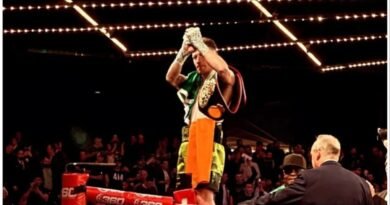A History of Irish Boxing At The Olympics
Boxing and the nation of Ireland have gone hand in hand for decades. The Olympic Games are the stage on which Irish fighters have punched well above their weight to deliver medals, national pride, and unforgettable moments to a country passionate about the sport.
From gritty amateurs who are often considered underdogs to polished tacticians, Ireland’s Olympic boxing story is one that is hardly rivaled by any other country.
Why Ireland Excels In Olympic Boxing
To understand why Ireland has such a storied history in Olympic boxing, it is important to look into the reasons behind the nation’s excelling at this sport in particular and being favoured in many boxing betting markets today. One of the main reasons is the grassroots infrastructure all across Ireland, as local boxing clubs are able to provide youths with consistent and competitive training.
Boxing is deeply rooted in working-class Irish culture, which has helped to produce a wide pool of high-quality competitors throughout the years. Backed by elite coaching, which the nation’s Olympic team has consistently invested in, and plenty of role models to inspire the next generation, Irish boxing continues to reign supreme.
Early Days
The journey of the Irish Olympic boxing team started in 1924 at the Paris Olympics, in which the sport quickly established itself as one of the nation’s most promising areas. Though medals eluded the Irish fighters in the early decades of the Olympics following Ireland gaining independence, it was clear to them that the Emerald Isle’s grassroots boxing scene, built off the back of small community gyms and other amateur competitions, was laying the foundations for something special to follow.
First Medal
The breakthrough, which seemed to have been designed for years due to the talent that Ireland had possessed, finally came in the 1956 Melbourne games. Fred Tiedt managed to secure silver in the welterweight men’s division, claiming the first boxing medal for Ireland in the process. Though it was considered by many that the final against the Romanian competitor was controversially scored, the performance of Tiedt on the grandest stage signalled that Ireland could compete at the highest level.
1990s Dominance
Fast forward to the 1990s, this is where Ireland came into a dominant era. In Barcelona 1992, a monumental moment unfolded when Michael Carruth won gold in the welterweight category, becoming Ireland’s first Olympic boxing champion in the process. This transformative virtue inspired a new generation of fighters across the country, and just four years later, Wayne McCulogh won silver in Atlanta in 1996. This showed that the Irish boxing precedence on the international stage was no fluke, with the two medal claimants becoming household names in the process, highlighting the nation’s ability to nurture elite-level talent.
New Era At Beijing
A new golden era was born in the 2008 Beijing Olympics, with the Irish boxing team thriving under the stewardship of Billy Walsh. Kenny Ega won silver in the light heavyweight category, Darren Sutherland secured bronze in the middleweight division, and Paddy Barnes took home a bronze medal in the light flyweight class. After a brief period without any medals at the Olympics, this outing in China reestablished Ireland as an amateur boxing powerhouse, and the performances electrified the nation at the same time.
History Made In London
When it came around to the London 2012 Olympics, this outing was an iconic one for Irish boxing. Not only was this because of the medal count that the nation mustered up but also due to Katie Taylor claiming gold in the inaugural women’s lightweight category. Already a star back in Ireland, Taylor became a national hero and a symbol of excellence in the women’s sport, something which she would only go to back up throughout the duration of her highly impressive career. This was not the only medal that Ireland took home that year either, as John Joe Nevin won a silver in the bantamweight class, and two bronzes were won in the flyweight and light-flyweight divisions by Michael Conlan and Paddy Barnes, respectively.
Rio Setback & Tokyo Comeback
Expectations for the Irish boxing team going into the 2016 Olympics in Rio de Janeiro were high. However, this turned out to be a disappointing campaign, as for the first time since 2004, Ireland left the Olympics without a boxing medal to its name. Several controversial judging decisions and other internal turmoil within the Irish Amateur Boxing Association raised concerns and called for serious restructuring.
These concerns were certainly addressed going into the 2020 Tokyo Olympics, as Ireland managed to bounce back strongly. Kellie Harrington captured gold in the women’s lightweight division, echoing Katie Taylor’s triumph nine years prior (the competition was held in 2021 due to the global COVID-19 pandemic). Thanks to Aisan Walsh also securing a bronze medal in the men’s welterweight division, this signified a new generation of Irish boxing talent and a return to the top for the nation.
Kellie Harrington’s steady stream of form would also carry over to the 2024 Paris Olympic games, in which she went on to win yet another gold in the women’s lightweight category. This achievement of back-to-back victories only highlighted Ireland’s prowess in Olympic boxing further.


